The humiliation! Not only has Alexander the Great just lost the Battle of the Granicus, perishing in the process, the commander that outwitted him was consuming a bowl of Shreddies and admiring a low-flying Milvus milvus while issuing his orders. My first two Arete battles were fun, but they’ve left me wondering whether this new £7, eight-scenario wargame needs a ‘hard’ difficulty setting.
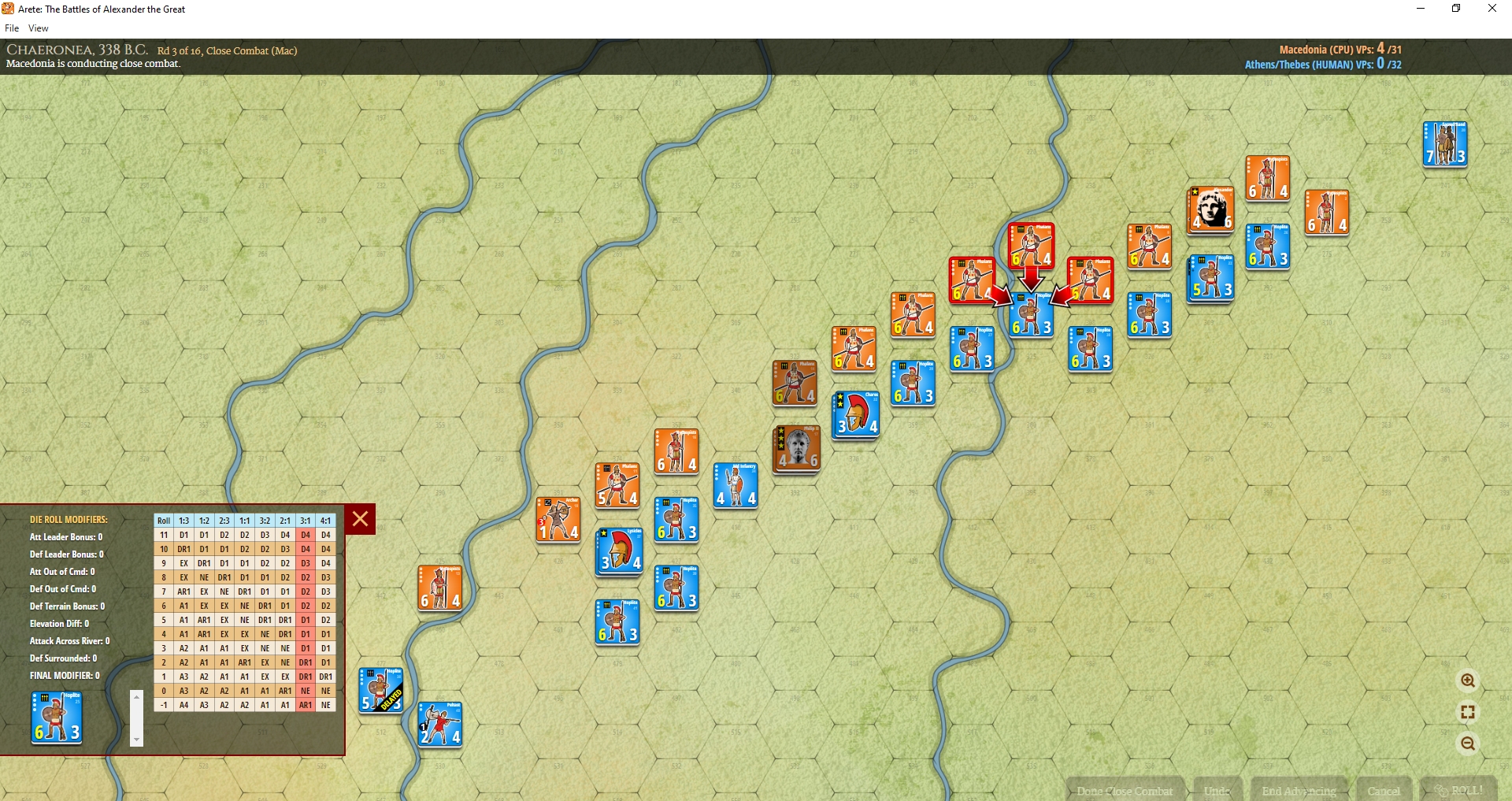
Before I beat Alex with a Persian army, I beat him and his dad with an Athenian/Theban one. Although both scraps were close, and in the latter the Macedonians were disadvantaged by a string of horribly low initiative rolls, these results suggest an experienced player may need to turn to multiplayer in order to find a truly worthy adversary.
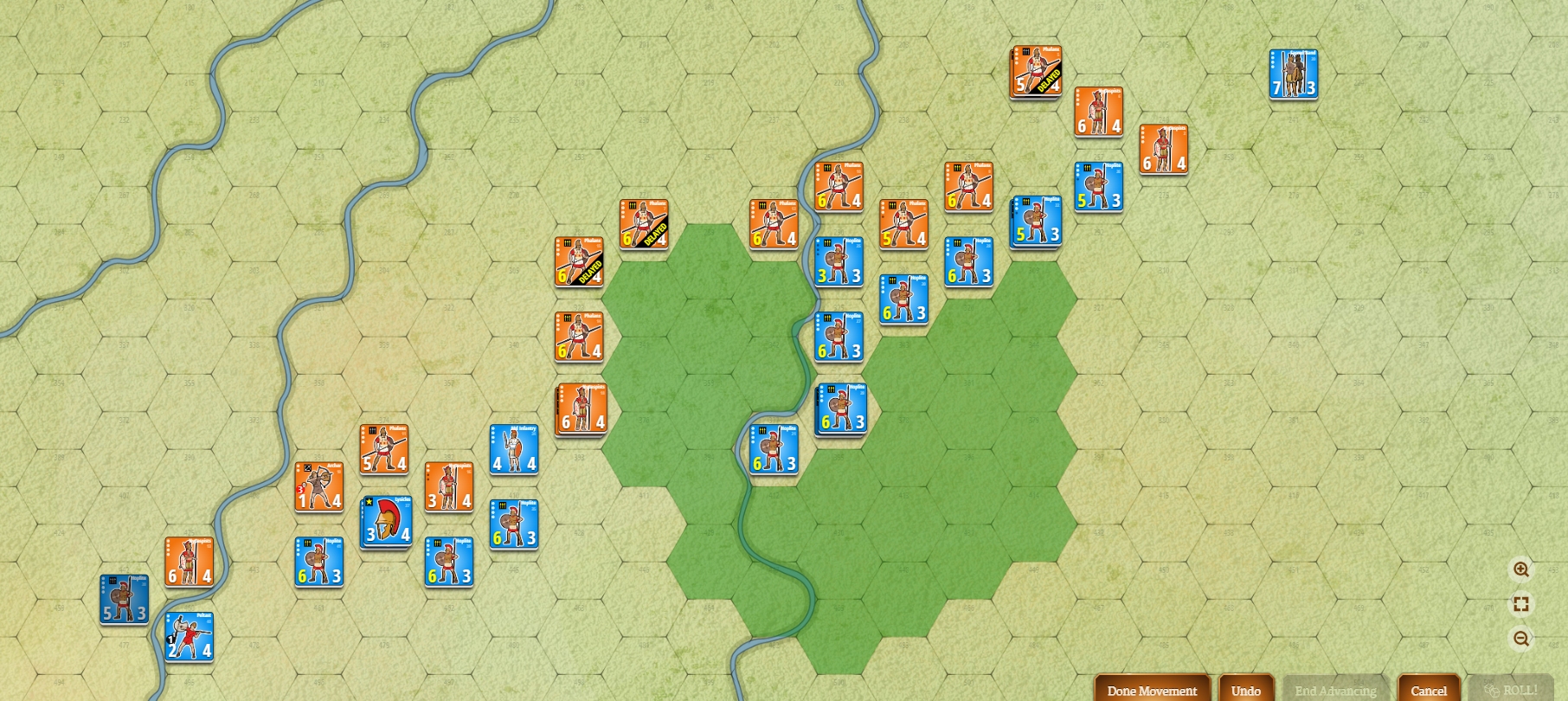
Currently, the only way to alter challenge in Quick Games is to choose a ‘balanced’ setting. As this makes things slightly easier for Alexander by lowering his VP victory threshold, obviously this tweak is of no use to a player looking to toughen the Macedonian experience.
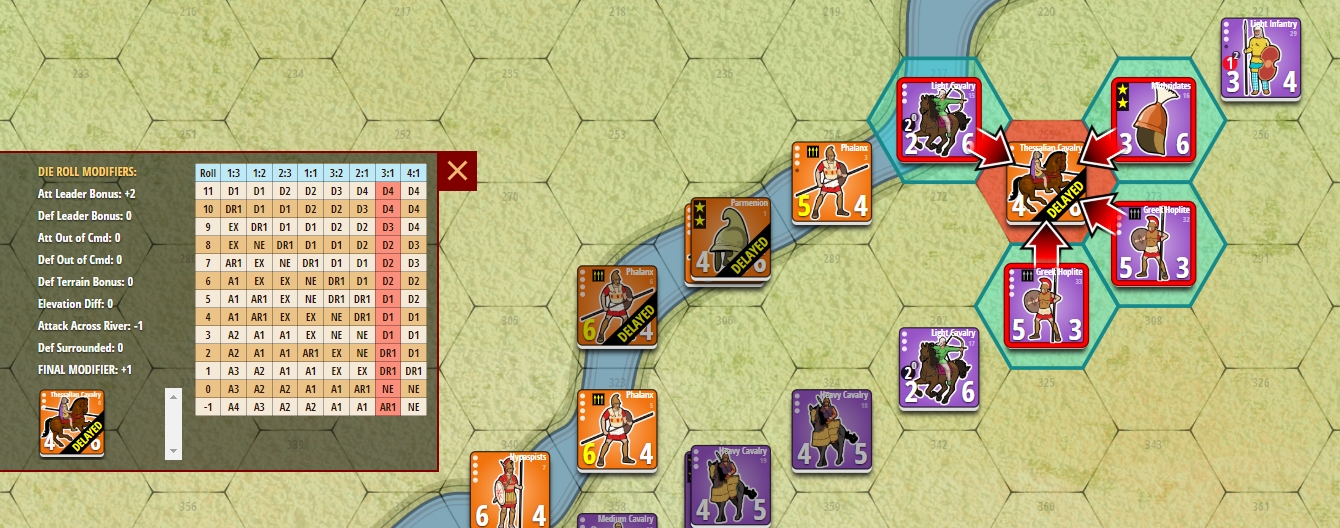
Friendlier and more conventional than the last budget hex wargame I played, Arete boasts admirably simple turn structuring and straightforward combat mechanics, both of which feel like they’ve been borrowed from a solid, mid-complexity board wargame. Leaders and terrain nudge the highlighted column on a CRT either left or right, and exciting 1D10 attack rolls produce a number of different results including step losses (sometimes on both sides), retreats, and slain leaders.
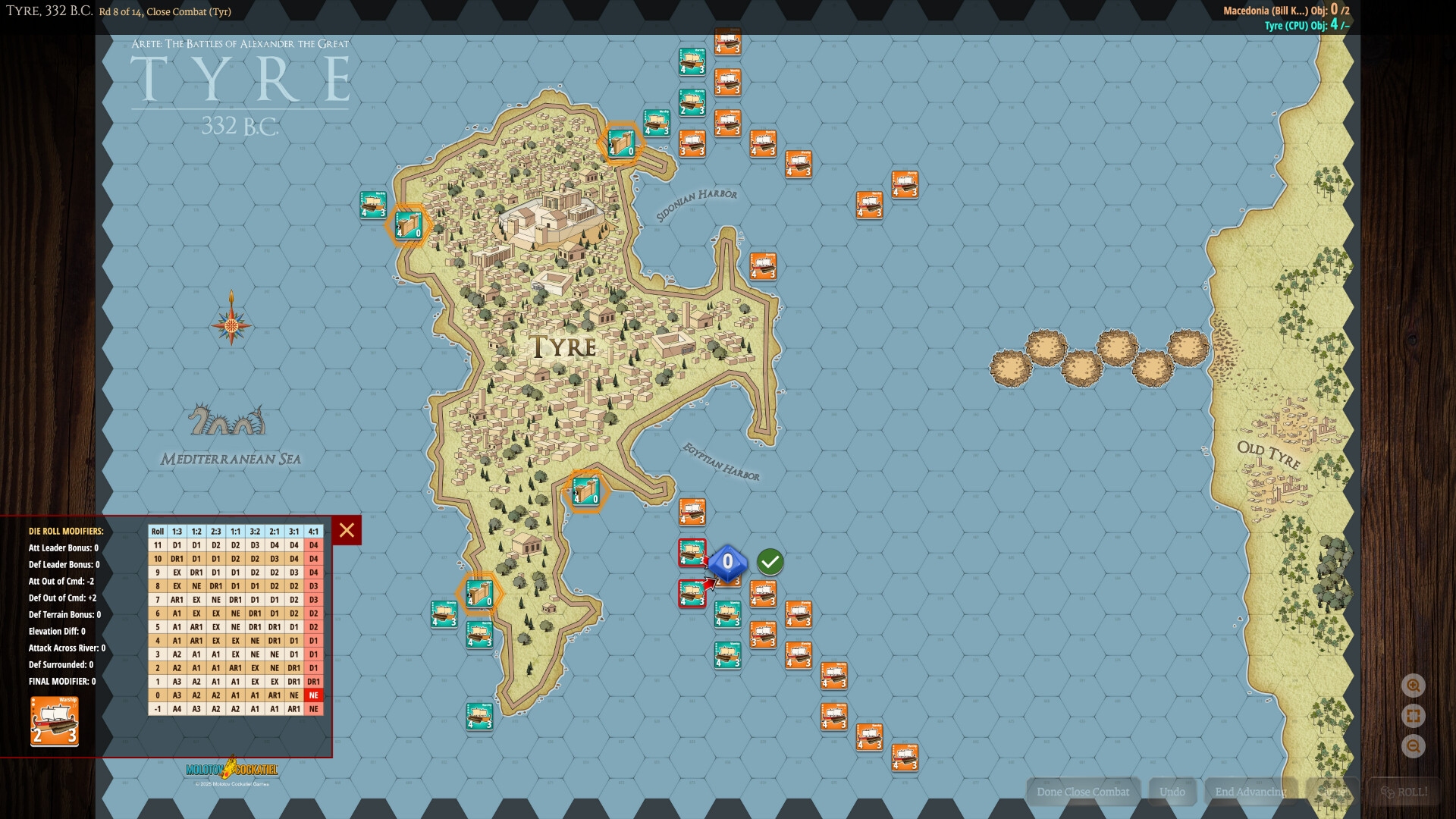
Purchasers get a decent interactive tutorial, a useful undo key, and a dash of naval action (The Siege of Tyre scenario comes with custom victory conditions, turn phases, and rules). They don’t get mouse-wheel zooming, a unit pane, or a skirmish generator – all undeniable boons in a wargame of this type.

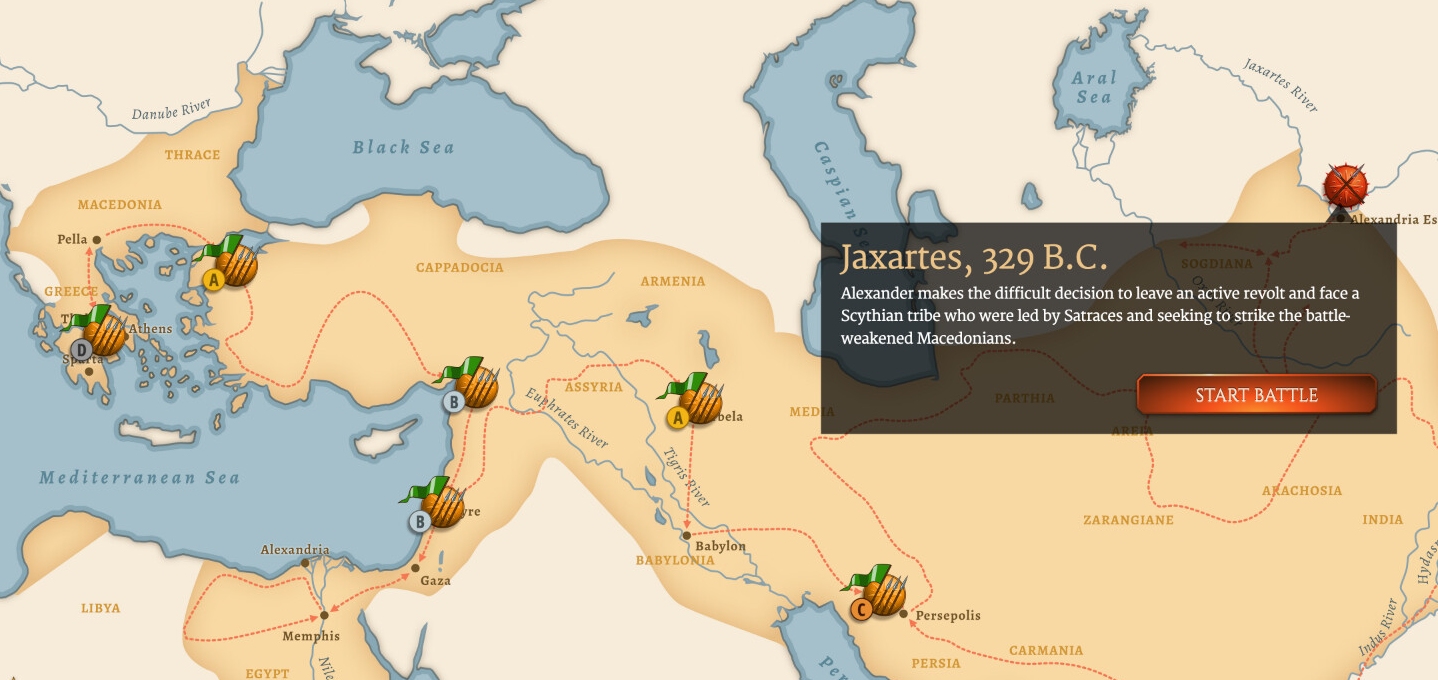
I am not the best strategist in the wargaming world, far from it, but i failed the first battle 3 times out of 3. Yes, I was awfully unlucky with initiative, but I would not say this game is too easy 🙂
Although, for me most of the difficulty stems from the utter madness of how the game operates vs how I expect the battles of the period to function.
Hex-grid zig-zag lines of units that lack facing, with vulnerable bulges provided by the said hex-grid + lightning mobility of heavy infantry + skirmishers and cavalry unable to evade an assault by hoplites + the fact that a round of indecisive melee does not lock the units in combat = I don’t even know what this game simulates, because it has as little to do with the period combat as my cat.
Or maybe I am just too salty 🙂
I agree with your assessment of the games operation vs how you would expect fighting of the period. The lack of any flanking bonus or requirement to stay engaged with an enemy once combat begins does seem like an odd choice! But the game does push you towards working with blocks of phalangites that pin each other until one line breaks so I guess the essentials are there?
However I have to say I’ve really enjoyed chipping through this, I’m nearing the end of the Macedonian campaign now and have only really struggled with the Persian gates scenario. I’ve found the music running through my head most days this week too!
As a solo effort and under a tenner I can’t complain!